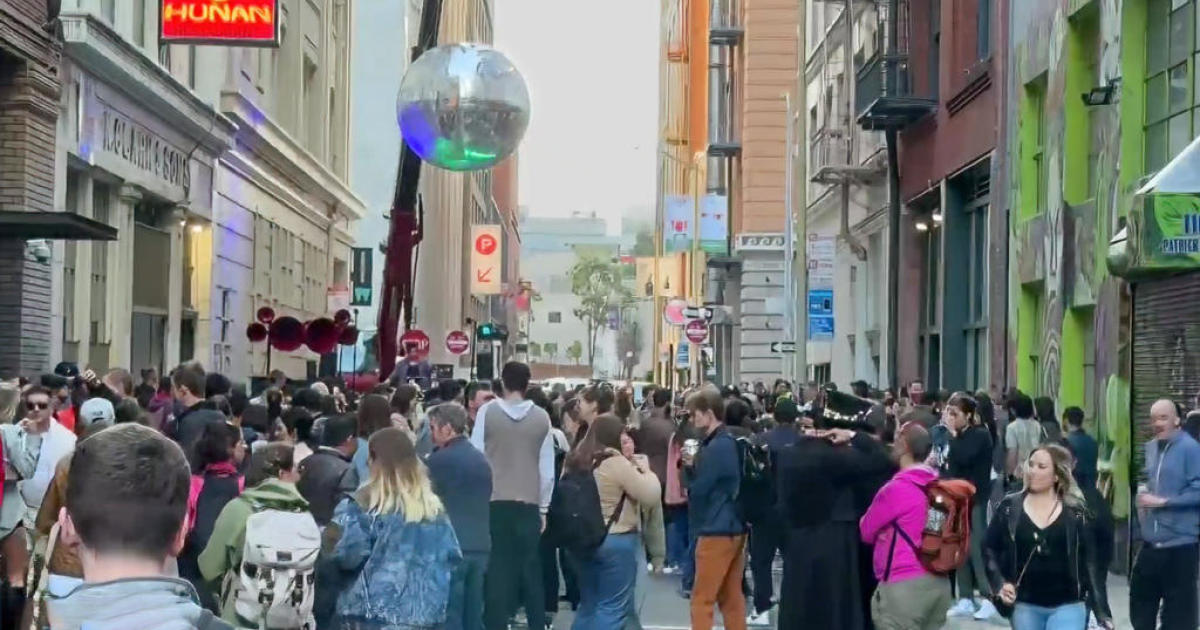Fight Heats Up Over San Francisco's Waterfront Along The Embarcadero
SAN FRANCISCO (CBS) -- A San Francisco judge Wednesday largely rejected an effort by the state Lands Commission to have a 2014 city proposition setting height limits on waterfront development thrown out.
In a tentative ruling issued Wednesday, Judge Suzanne Bolanos rejected arguments by State Lands Commission attorneys that Prop. B conflicts with state interests by giving voters a say in the height of buildings in waterfront projects.
The state maintains that city elected officials and the Port Commission should have sole jurisdiction over such decisions.
However Bolanos seemed to lean toward accepting city arguments that Prop. B served the public trust by seeking to preserve waterfront views and access.
"Proposition B purports to serve statewide interest by preserving San Francisco's "unique and vibrant vital waterfront with adequate public views of, and access to, the City and San Francisco Bay," Bolanos wrote in her tentative ruling. "The Commission has failed to explain how or whether Proposition B's stated intent conflicts with statewide interests."
Deputy Attorney General Joel Jacobs, who is representing the lands commission, argued Wednesday in court that the state's interests were harmed by reductions in the height of waterfront projects and by affordable housing requirements because those changes meant lost revenue. That revenue, in turn, could be applied toward public goods such as open space, he argued.
Jacobs said public agencies are the appropriate bodies to make decisions about public trust property because they have to go through a public decision making process and reveal the reasons for their decisions.
Individual voters, on the other hand, do not, and may make decisions for arbitrary reasons.
"It's a black box," Jacobs said. "That is, we don't know what any particular voter is thinking."
Deputy City Attorney Christine Van Aken said the state had no evidence of actual harm to state interests in any particular project, but was opposed to the general principal of voter input.
"I do find it ironic that the state lands commission is arguing that a process where the voters decide has less transparency than a process where an elected body makes a decision," Van Aken said. "There's nothing in state law that says that voters can't have a say in what the right public
trust uses are for the waterfront."
Jon Golinger, a member of the group No Wall on the Waterfront, which worked for Prop. B's passage, said he was pleased by Wednesday's tentative ruling. The case, he noted, could have had an impact on other communities that have passed local ordinances affected waterfront development.
"It appears that the judge clearly rejected the state's argument that Prop. B is invalid and that's a huge victory," he said. "Their whole argument has been that the voters of this city and effectively every other city should not have a voice and she said that's not the case."
Bolanos' ruling, if finalized, would still allow the lands commission to argue in trial that state interests were harmed in two specific projects, one at Pier 70 and one at Mission Rock, that have been approved by voters since Prop. B took effect. The case is currently set to go to trial on
Sept. 11.
TM and © Copyright 2017 CBS Radio Inc. and its relevant subsidiaries. CBS RADIO and EYE Logo TM and Copyright 2017 CBS Broadcasting Inc. Used under license. All Rights Reserved. This material may not be published, broadcast, rewritten, or redistributed. Bay City News Service contributed to this report.



